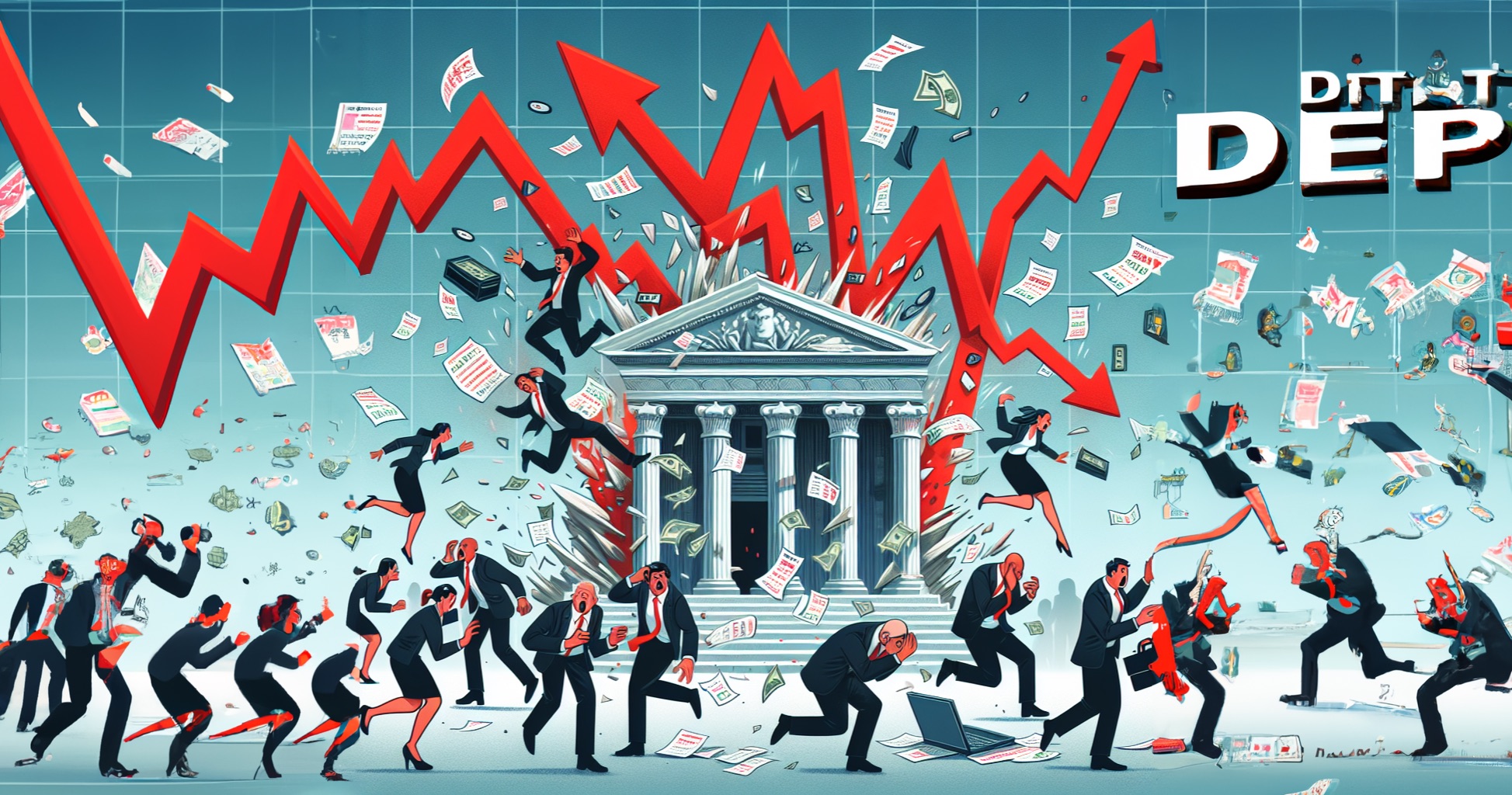
The Looming Calamity
Over the last few months, I’ve taken a renewed interest in investing. I’ve taken my money out of mutual funds and I’m now managing my own diversified portfolio of stocks, bonds and options. I’ve avoided taking an active approach in the past for the usual reasons people cite—not having the time to do the research, preferring to offload it to a professional who “knows what he’s doing” in exchange for muted returns. But now, suffice it to say, I have the time, and it is something that interests me, so I’ve completely immersed myself in it.
When something piques my interest, I really go deep. To be successful at investing, one must not only find good companies to invest in, but one must determine the right price to invest at. Stocks trade at a premium or a discount depending on the broader macroeconomic picture, so one must understand what’s going on in the broader economy to determine if the premium is justified and whether investing now or later would be the better bet.
And that brings us to the topic of the US and its ballooning debt. People have been talking about the looming debt crisis my entire life yet it continues to inflate year after year without fail. I am not sharp enough to go into much detail on this topic but suffice it to say, many who understand economics agree that it is a huge problem and eventually, someday, shit is going to break and markets will likely react violently, and asset holders like myself will have to contend with it.
My opinion about the debt hasn’t changed much over the years. Based on what I’ve observed, politicians will continue to do nothing about it until something breaks because doing something about it now would require unpopular cuts to entitlements (social security).
So it seems fairly evident that some sort of financial calamity is inevitable, the magnitude of which will make the 2008 financial crisis look like small potatoes.
So what is an investor to do? You can’t hold cash because it will just decrease in value as inflation ticks inevitably upward. So you have to invest in something if you want to preserve (ideally grow) your wealth. In my view, there are 4 major asset classes worth considering; gold, stocks, bonds and crypto. Some of those are safer than others with respect to their ability to shield you from a US financial collapse. In fact, one in particular, gold, is probably your best bet in that regard. And then there’s crypto, so called digital gold, which, like actual gold, is free from manipulation or supply disruptions from central banks. Theoretically, holding those two assets should shield you from the looming crash, whenever it may arise. The only problem with gold however is that, as Buffet famously said, it’s an unproductive asset with no utility aside from some limited industrial applications. And it has been in a hell of a bull market over recent years. And I have a bit of a phobia when it comes to chasing trends. It feels like it is ripe for a correction and, understanding I’ll quite possibly be eating these words down the road, I am hesitant to buy any of it today. As for crypto, I love the concept of a decentralized ledger and perhaps it is the future of money. Some are convinced of that. I’m not fully convinced but I am optimistic enough about crypto that I do have roughly 2% of my portfolio allocated to Bitcoin—a small enough position to call speculative but big enough to make a meaningful impact if the price does indeed hit 1 million as some internet-famous people are predicting.
As for the rest of my portfolio, a significant portion is in government and corporate bonds and the rest is in a diversified portfolio of stocks—some of which I intend to buy and hold forever and some have automated stops so that when the next bear market hits, I will get stopped out and automatically raise some cash. That’s the idea anyway. I prefer stocks because they have intrinsic value—there is an objective measure to determine whether they are fair valued or not, so you can make an informed decision about when to buy and sell. Gold and bitcoin have no intrinsic value, therefore it’s unknowable if their prices are justified. I guess you can roughly say that they are priced relative to the market’s confidence in the world’s reserve currency. Maybe. Until they’re not. It’s a bit of a guessing game.
And, in the case of a calamity where confidence in the US dollar plummets, owning shares in a quality businesses, the ones that survive, that is, will still be worth something. Which raises the question, when the crash to end all crashes finally arrives, perhaps it will look nothing like crashes of the past. In fact, if the dollar is no longer desired, would people be selling into another currency? Would people sell at all? Perhaps stocks will skyrocket instead of crash because they would be one of the only remaining assets with intrinsic value. Who knows, but either way, I don’t see a future where owning quality businesses would ever be a bad idea except, of course, for some kind of total apocalypse scenario where guns and ammo become the most valuable currency. In a total societal collapse, stocks and crypto would cease to exist. As for gold, well, I suppose after the human race slowly reemerges from a period of tribal warfare, it just might reassume its historical role as a medium of exchange.
